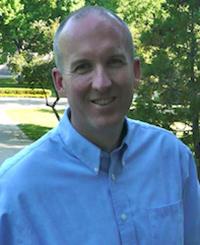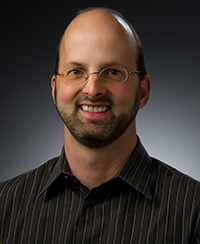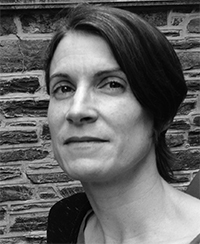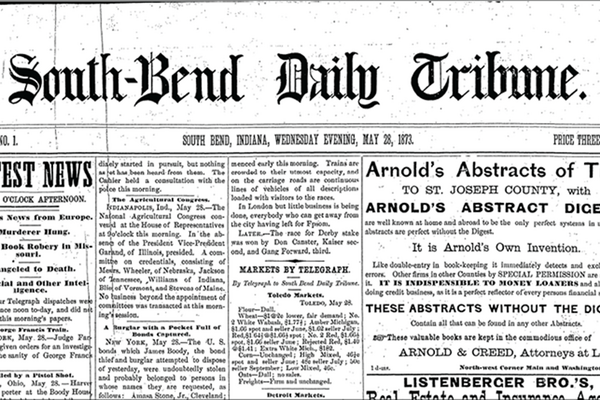 Michael Rea
Michael Rea  Samuel Newlands
Samuel Newlands  L.A. Paul
L.A. Paul
A research collaboration that aims to build new understanding about how religious and transformative experiences occur and shape people’s lives is awarding its first round of funding with more than $1.7 million going to 22 projects.
The Experience Project is co-directed by Michael Rea, a professor of philosophy, and Samuel Newlands, the William J. and Dorothy K. O’Neill Collegiate Associate Professor in Philosophy—both of the University of Notre Dame’s College of Arts and Letters—and L.A. Paul, a professor of philosophy at the University of North Carolina at Chapel Hill’s College of Arts and Sciences.
The overall $5.1 million project, supported by a generous grant from the John Templeton Foundation, looks to answer questions about how religious experiences affect a person’s concept of God; how transformative experiences can affect a person’s identity, values, belief system, and behaviors; and how religious and other types of transformative experiences differ.
One component of the project, Rea said, focuses on the nature and significance of religious experiences.
“We’re trying to figure out what we can and should conclude about God and God’s love for us through the patterns and varieties of religious experiences throughout the world,” he said.
Another component focuses on ordinary but momentous events people face every day, Paul said.
“The project takes a bold new approach to understanding some of life’s deepest existential questions by exploiting the resources of analytic philosophy and empirical social science to try and get a better sense of the importance and meaning of lived experience, self-realization, and our understanding of our place in the world,” she said.
The project offers non-residential funding and residential fellowships (at Notre Dame’s Center for Philosophy of Religion and the University of North Carolina at Chapel Hill), and also funds a series of collaborative workshops.
Project funding falls into one of three research categories—social science, philosophy, and philosophy of religion.
Among the projects receiving non-residential funding are:
- “Receptivity of God through Ritual,” by Terence Cuneo, a University of Vermont professor of philosophy, will investigate the connection between religious experience and religious activity, especially liturgical activity in the Christian tradition. Through four essays, Cuneo will explore the ways in which people come to appreciate rituals and the crucial role they play in developing an ability to experience God in the ordinary.
- “Transformative Understanding,” by Tania Lombrozo, a University of California, Berkeley associate professor of psychology, will develop the claim that gaining understanding—as opposed to simply gaining knowledge—is a transformative experience that can change beliefs, values, and attitudes. Through a series of studies, she will investigate the nature of transformation people undergo when coming to understand something new and how that understanding can change worldviews.
- “Shifting Bodies, Shifting Feelings: Birth Transforms Positive Emotions from Self-Relevant to the Selfless,” by June Gruber and Sona Dimidjian, psychology faculty members at the University of Colorado Boulder, will test folk theory assumptions that birth radically transforms one’s experience of emotions in ways that cannot be understood without having had the experience. They will examine how birth enhances emotional diversity, specifically selfless emotions.
Additional projects receiving funding in the first round:
- “Divine Forgiveness as Religious Experience,” Brandon Warmke, Wake Forest University
- “Is It Possible to Have a Veridical Experience of God’s Absence?,” Max Baker-Hytch, University of Oxford
- “Embodied Religion: Social Structures and Religious Experience,” Christina Van Dyke and Robin Dembroff, Calvin College and Princeton University, respectively
- “Responding to Skepticism: Radical, Moral, and Religious,” Michael Bergmann, Purdue University
- “Religious Experience and the Transformation of Human Cognition: Approaches to Spiritual Perception,” Paul Gavrilyuk and Mark Spencer, University of St. Thomas
- “Mystical Experience in Psychology,” Martin Echavarria and Enrique Garcia, Abat Oliba University
- “Personal Possibility,” Martin Glazier, New York University
- “The Self-Conditioning Strategy as an Important Ingredient in Transformative Decision-Making,” Enoch Lambert, Harvard University
- “Evaluating Transformative Experiences,” Mark Johnston, Princeton University
- “Reasonable Commitments and Transformative Experiences of Value,” Kyla Ebels-Duggan, Northwestern University
- “The Mother of all Transformative Experiences: Thinking About and Caring About Profoundly Different Individuals,” Paul Bloom, Yale University
- “The Warm Glow of Burning Man: Investigating the Impact of Transformative Experiences on Prosocial Behavior,” Molly Crockett and Aleksandr Chakroff; University of Oxford and Harvard University, respectively
- “‘I Was Never the Same’: Development and Validation of a Text-Based Approach to Studying Transformative Experience,” Jesse Graham, University of Southern California
- “Computational Models of the Intuitive Theory of Transformative Experiences,” Joshua Tenenbaum, Massachusetts Institute of Technology
- “Dating and Sex After Divorce at Midlife,” Elizabeth Armstrong and Spencer Garrison, University of Michigan
- “Travel as Transformative Experience: Touristic Quests for Radical Self-Discovery,” Thomas DeGloma and Erin Johnston, Hunter College (CUNY) and Princeton University, respectively
- “The Social Organization and Cultivation of Transformative Experience,” Justin Farrell, Yale University
- “Souls Without Borders: Conservative Protestant Missionary Work as Transformative Experience,” Daniel Winchester, Purdue University
- “Marywood University Bridges Experience: An Interdisciplinary Exploration of Religious and Spiritual Experience,” John DePoe and Melinda Krokus, Marywood University
In an upcoming funding cycle, the Experience Project will award additional grants for work in philosophy, theology, and religious studies. For more about the project, visit the-experience-project.org.


